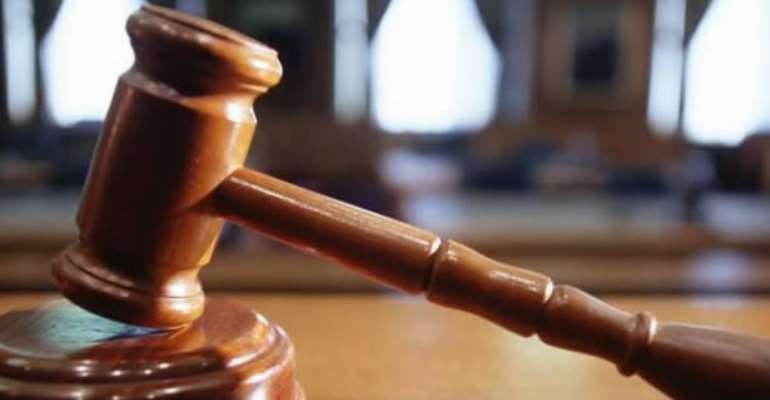On The Row Between The National Assembly And The Honourable Attorney General Of The Federation –A Legal Perspective

Before I begin, it is apt to say that 'two wrongs do not make a right".
In Nigeria, as well as most countries where the common law is practiced, whenever a matter or cause is pending for determination before a court of competent jurisdiction, all interested parties are estopped from making statements or taking such actions that will have the implication of preempting the verdict or decision of that court. This principle is known as the principle of subjudice.
It means then that any investigation, fact-finding mission or inquiry done by any other entity on the same issue as that already in court, without the permission of that very court would amount to interference to a subjudiced matter.
Section 6 (6) [a] & of the Constitution of the Federal Republic of Nigeria, 1999 as amended, clearly provides that court shall have power over every persons, government or any of its arms and authorities created under the constitution. Therefore every person, authority or institution, whether public or private, deriving its legitimacy from the Constitution must abide by the rules of courts especially when a matter has been submitted to the courts for determination.
In fact, Section 4 (8) of the Constitution maintains that the powers of the National Assembly or a State House of Assembly SHALL BE SUBJECT to the jurisdiction of the courts of law and of judicial tribunal...
That said, it is just to posit that the National Assembly, and any of its committees are empowered under Section 89 (1) [c] of the same Constitution to summon ANY PERSON in Nigeria to give evidence at any place or bring any document or thing in his possession or under his control and to examine that person as a witness.
In other words, the National Assembly may summon even the President and Commander-in-Chief of the Armed Forces subject to ALL JUST EXCEPTION.
In view of the foregoing, it is no longer news that the Senate Committee on Judiciary, Human Rights and Legal Matters, chaired by Sen. David Umaru had in exercise of Section 89 (1) [c] of the Constitution summoned the Attorney General of the Federation and the Minister of Justice (AGF/MOJ) to explain why the leadership of the Senate is undergoing criminal trials on allegation of forgery of the Senate Rules.
The AGF/MOJ blatantly refused to attend in person and cited reasons that the matter, subject of which he was summoned is SUBJUDICED!!!
Now the upper legislative house is furious at the Minister of Justice and the Federal Executive for some uncomplimentary comments credited to them. The Senate berated the assertion that the AGF is not answerable to it.
After these careful analyses, I now attempt to set the records straight.
1. The National Assembly or any of its committee, as representative of the Nigerian people, can summon ANY PERSON to appear before it. No Court of law can take that right away from it.
2. The Attorney General of the Federation and Minister of Justice erred when he refused to honour the invitation/summons regardless of the subject matter.
3. The Defence put up by the Attorney General of the Federation that the matter is SUBJUDICE is apposite. However, a notion that he is not answerable to the National Assembly is misguided.
4. The proper approach would have been for the AGF to attend the invitation and honour the summons and thereafter proclaim the Defence of subjudice which barred his ability to speak on the matter.
5. It does not matter whether it is the Senate President and the Deputy that are standing trial, the AGF is duty bound to attend the summon. Besides, it is not the Senate that is undergoing a trial, it is only persons occupying the leadership of the Senate, and the question of nemo judex in causa sua - you cannot be a judge in your own case - does not apply, though it appears that the summons from the Senate Committee is retributive in view of the recent wrangling between the presidency and the National Assembly.
6. In the interest of the good governance, best practices and posterity, the AGF should recant his earlier statements and apologise to the Senate. It does not take anything from us. Besides, no society makes progress in tumults.
7. Bottom-line: We need to take responsibilities for our actions, act responsibly as people and think responsibly. Two wrongs do not make a right!
For Further Information, Please Contact
Churchill Chukwu Kalu Esq.
Attorney-at-Law
7, Badmus Street of Yidi Bus Stop, Oke-Aro Road,
Agbado.
Ogun State.
+234-08065072667, +234-07018099792
[email protected]
